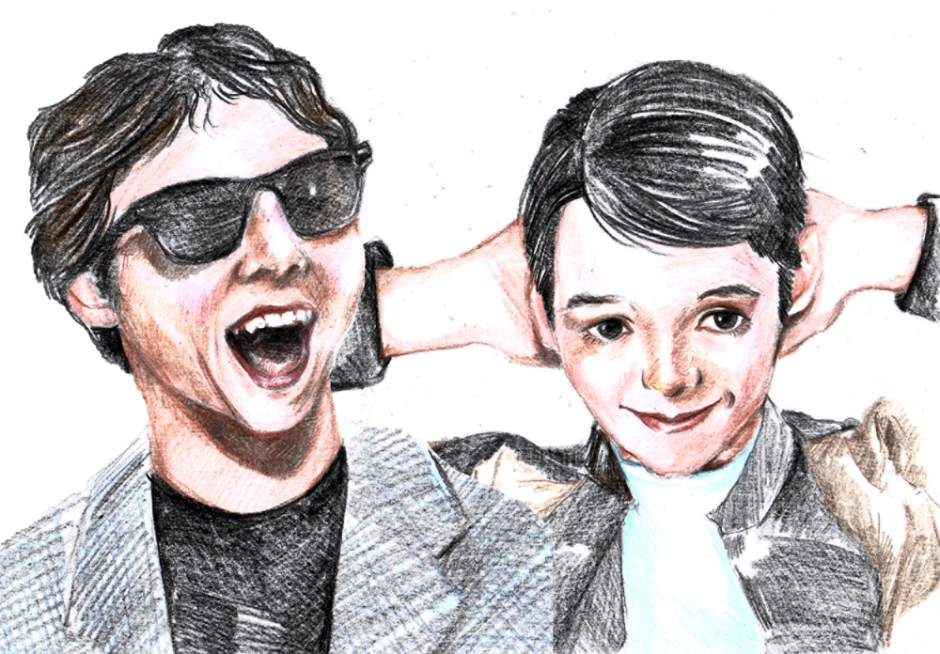Rarely has an audience received such profound wisdom from a fictional character as when Ferris Bueller, laying waste to the fourth wall, proclaimed: “Life moves pretty fast. If you don’t stop and look around once in a while, you could miss it.”
Throughout its run time of approximately 103 minutes, Ferris Bueller’s Day Off is an exercise in youthful imagination — a fairy tale played out in a bustling metropolis. More than anything, Ferris Bueller teaches us that a world of possibility is readily available if we seize it by our own volition. What awaits us, though, lies for the most part outside the mundane drill of attending school.
The tension between remaining grounded in education and ultimately transcending it, taking advantage of what lies beyond the pressures of academic success, is a conflict often explored in films that go on to achieve cult status. Ferris Bueller’s Day Off, Risky Business, and Rushmore are all inherently different, but are tied together by a common comedic thread. These films show the mundanity of everyday existence, scholarly or otherwise, and the conflicting desire to break free from that by any means possible.
Take, for example, the beginning of Ferris Bueller’s Day Off. On a beautiful spring morning, Ferris looks out his window and says: “How can I possibly be expected to handle school on a day like today?” Brief shots of Ferris’s school show a droning Ben Stein, whose monotonous delivery has left the class (and, intentionally, the audience) on the verge of a Hawley-Smoot Tariff Act-induced slumber. We have all had those lectures worth skipping, and we have all been tempted to break the shackles of alarm clocks and timetables and go about the day differently.
In a similar vein, Risky Business, starring a pre-couch-jumping Tom Cruise, features the ironically named Joel Goodson, an upper–class prospective Princeton student who participates in an extracurricular activity in which students start small businesses. When his parents go away on vacation, he breaks free from academic pressures and lets loose, taking his father’s Porsche on a pleasure cruise, running around in his underwear, and, ultimately, opening up a profitable brothel in his parents’ home.
After jeopardizing his chance at getting into Princeton, Goodson does not seem terribly fazed — his satisfaction in having excelled in his extracurricular pursuits as an entrepreneur provides him with all the fulfillment he needs. Although grand theft auto and prostitution are not the best ways to shatter monotony, it is worth noting that, sometimes, reaching to a risky fantasy can be just as, if not more, rewarding than plateauing in academic reality.
Whether it be Ferris Bueller, Joel Goodson, or Max Fischer from Rushmore, these characters are irresistible by virtue of their ability to fulfill the mundane wish of so many young people. That is, they manage to escape the social mores that dictate how our youth plays out. They embody what most of us are too afraid to do, dissolving the tension between what we think we ought to do for the sake of our academics and what we want to do for the sake of our happiness. Life is only as mundane as we make it, so if we don’t stop to look around once in a while, we might miss it.
